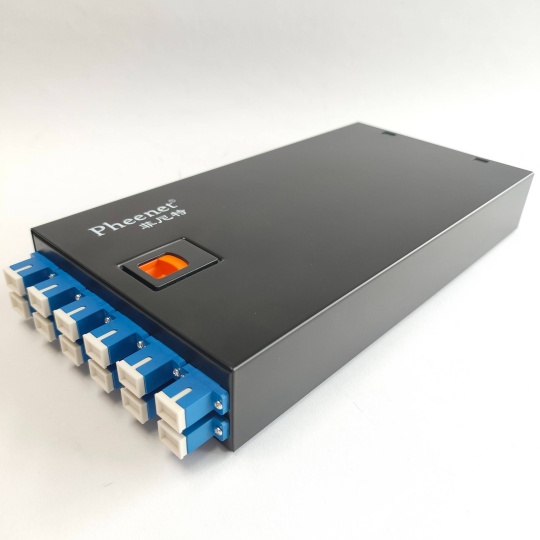What is the difference between industrial cable and power cables
In the field of electrical engineering, cables are the lifelines that ensure the stable transmission of electricity. However, not all cables are created equal. Industrial cables and power cables, though both designed for electrical transmission, serve distinct purposes and differ significantly in multiple aspects. Understanding these differences is crucial for selecting the right cable for specific applications, avoiding operational failures, and ensuring safety.
1. Application Scenarios: Targeted for Different Environments
Power cables are primarily designed for the transmission and distribution of electrical energy in power systems. They are used in scenarios such as connecting power plants to substations, transmitting electricity between substations, and supplying power from substations to residential, commercial, or industrial areas. These cables often operate in relatively stable environments, such as underground trenches, overhead power lines, or cable ducts, where they are less exposed to frequent physical impacts or chemical corrosion.
In contrast, industrial cables are tailored for use in industrial settings with harsh and complex conditions. They are widely applied in manufacturing plants, oil refineries, mining sites, chemical factories, and automation systems. For example, they connect motors, sensors, control panels, and production equipment. These environments may involve high temperatures, humidity, oil contamination, mechanical abrasion, vibration, electromagnetic interference (EMI), or even exposure to corrosive gases and liquids. Thus, industrial cables must be resilient enough to withstand these challenges.
2. Design Standards and Specifications: Complying with Diverse Requirements
Power cables adhere to strict standards focused on high-voltage transmission capacity and insulation performance. International standards such as IEC 60502 (for power cables) or ANSI/ICEA S-94-649 specify parameters like conductor cross-sectional area, insulation material thickness, and voltage rating. The key design goal is to minimize power loss during long-distance transmission and ensure insulation integrity to prevent electrical breakdown. Common voltage ratings for power cables range from low voltage (LV, below 1kV) to extra-high voltage (EHV, above 220kV).
Industrial cables, on the other hand, follow standards that emphasize environmental resistance and functional reliability. Standards like IEC 60228 (conductor) and IEC 60332 (fire resistance) are often referenced, along with industry-specific standards (e.g., for marine or mining applications). Their design prioritizes properties such as flexibility, flame retardancy, oil resistance, and EMI shielding. Voltage ratings for industrial cables are typically lower (mostly below 1kV), as they are used for equipment-level power supply and signal transmission rather than long-distance high-voltage power delivery.
3. Structural Characteristics: Built for Specific Challenges
The structure of power cables is optimized for electrical performance. They usually consist of: Conductor: A thick, high-conductivity material (e.g., copper or aluminum) to handle large current loads. Insulation Layer: A thick layer of insulating material (e.g., XLPE, cross-linked polyethylene) to withstand high voltages. Sheath: An outer protective layer (e.g., PVC or PE) to resist moisture and mechanical damage. Some high-voltage power cables may also include a metallic screen layer to control electric fields.
Industrial cables have a more robust and specialized structure to cope with harsh conditions. In addition to the basic conductor and insulation, they often feature: Shielding Layer: To protect against EMI, ensuring stable signal transmission in industrial automation systems. Armoring: A layer of steel wire or tape to resist mechanical abrasion and impact. Specialized Sheath: Made of materials like neoprene or PTFE to provide oil, chemical, and high-temperature resistance. For example, cables used in oil refineries have oil-resistant sheaths, while those in high-temperature environments use flame-retardant and heat-resistant materials.
4. Performance Requirements: Focused on Different Priorities
Power cables prioritize current-carrying capacity, voltage withstand, and long-term stability. They need to operate continuously under high current loads without overheating and maintain insulation performance for decades. For instance, XLPE-insulated power cables are known for their excellent thermal stability and low dielectric loss, making them suitable for long-distance transmission.
Industrial cables emphasize flexibility, durability, and environmental adaptability. They may need to be bent repeatedly during installation or equipment movement, so flexibility is critical. Additionally, they must resist aging, corrosion, and mechanical stress to ensure reliable operation in industrial processes. For example, flexible control cables used in robotic arms need to withstand frequent bending without conductor breakage.
How to Choose the Right Cable?
When selecting between industrial and power cables, consider the following factors: Voltage and current requirements: High-voltage, large-current applications (e.g., power grid) require power cables; low-voltage equipment connections need industrial cables. Environment: Harsh conditions (heat, oil, vibration) call for industrial cables; stable environments suit power cables. Functional needs: If EMI shielding or flexibility is needed, industrial cables are the choice; for long-distance power transmission, power cables are optimal.
FRS: Your Trusted Partner for Quality Cables
Whether you need reliable power cables for energy distribution or durable industrial cables for harsh environments, FRS brand factory delivers exceptional solutions. With years of expertise in cable manufacturing, FRS adheres to international standards (IEC, ANSI) and uses premium materials to produce cables that meet diverse application needs. Our power cables ensure efficient, long-term power transmission, while our industrial cables boast superior resistance to heat, oil, and mechanical stress. Backed by strict quality control and customization services, FRS is committed to providing safe, reliable, and cost-effective cable products for your projects. Choose FRS, and power your operations with confidence.











